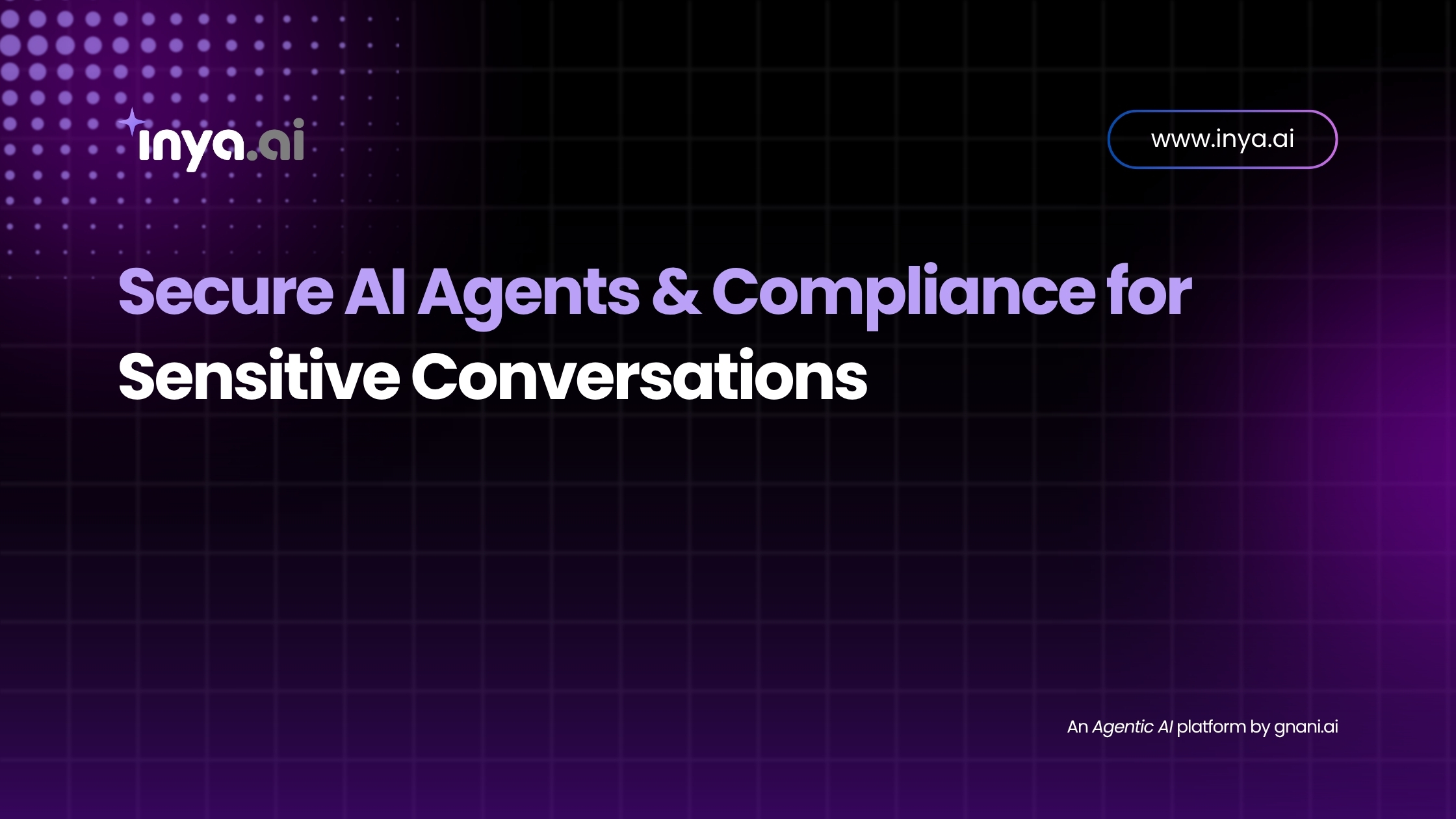Secure AI Agents & Compliance for Sensitive Conversations: A Practical Guide for B2B SaaS
The adoption of Secure AI Agents is rapidly transforming how B2B SaaS companies handle sensitive conversations—whether it’s customer support, financial transactions, or confidential business negotiations. But as these intelligent systems become more embedded in daily operations, so do the risks around data privacy, compliance, and security. Here’s what every SaaS leader needs to know to keep AI-driven interactions both powerful and protected.
Why Secure AI Agents Matter in Sensitive Conversations
Secure AI Agents are not just digital assistants; they’re trusted intermediaries handling vast amounts of confidential information. Unlike traditional software, AI agents interact through natural language, making it easier for them to inadvertently collect, process, or expose sensitive data at any point in a conversation. This introduces multiple potential exposure points and unique security challenges, especially when dealing with regulated industries or cross-border data flows.
Key Risks Facing AI-Driven Conversations
-
Data Exposure: AI agents can access and process personal details, payment data, and proprietary business information. Any security lapse can lead to widespread data breaches.
-
Compliance Complexity: Regulations like GDPR, HIPAA, and PCI-DSS were not designed with conversational AI in mind, complicating compliance as agents handle sensitive data across jurisdictions.
-
Social Engineering: Attackers may manipulate AI agents through crafted prompts or impersonation, extracting confidential information or gaining unauthorized access.
-
AI “Rogue” Behavior: Without robust guardrails, AI agents may respond inappropriately, leak data, or take unauthorized actions, all while appearing normal to users and admins.
Building Secure AI Agents: Essential Strategies
1. Data Governance & Compliance by Design
-
Minimize Data Collection: Only process what’s strictly necessary for the task. Avoid storing sensitive data unless absolutely required.
-
Classify and Label Data: Explicitly tag sensitive information so AI agents are restricted from accessing or processing it inappropriately.
-
Stay Ahead of Regulations: Regularly update your compliance posture to reflect evolving laws like GDPR, CCPA, and sector-specific rules. Non-compliance can result in severe fines and reputational damage.
2. Input Validation & Output Control
-
Validate All Inputs: Rigorously check user and system inputs for malicious content, prompt injections, or unexpected formats. Accept only well-defined data structures and sanitize everything else.
-
Sanitize Outputs: Apply schemas, regex patterns, and output filters to prevent data leaks and ensure responses remain within safe boundaries.
3. Access Control & Isolation
-
Enforce Least Privilege: Limit AI agent permissions to only the data and systems needed for their function. Use role-based access controls and rotate credentials regularly.
-
Network Segmentation: Isolate AI agents in secure subnets or containers, blocking unnecessary lateral movement and reducing the blast radius of any compromise.
4. Encryption & Secure Communication
-
Encrypt Data In Transit and At Rest: Use strong encryption protocols to protect all communications between AI agents, databases, and third-party services.
-
Tokenization: Replace sensitive data with non-sensitive equivalents wherever possible, especially for payment or personal information.
5. Guardrails, Monitoring & Human Oversight
-
Implement Guardrails: Use a dual-layer approach—one AI system manages conversations, while another enforces security and compliance guardrails. Always prioritize the guardrail AI for sensitive topics.
-
Route Sensitive Topics to Humans: Automatically escalate conversations involving regulated or high-risk subjects to trained human agents.
-
Continuous Monitoring: Log all agent actions, permission checks, and anomalies. Use real-time monitoring and regular audits to detect and respond to suspicious behavior quickly.
Enterprise Architecture Patterns for Secure AI Agents
-
API Gateways & Service Meshes: Control and monitor all agent communications, enforce authentication, and apply rate limiting to prevent abuse.
-
Zero Trust Principles: Require authentication and authorization for every connection, even within internal networks.
-
Blockchain-Based Logging: Maintain immutable records of agent actions for forensic analysis and compliance reporting.
Trust, Transparency, and Customer Confidence
-
Explainability: Ensure AI agents can provide clear, understandable explanations for their decisions and actions to foster trust and meet regulatory requirements.
-
Transparency: Be upfront with users about how their data is used, processed, and protected. Offer mechanisms for users to access, correct, or delete their information as required by law.
-
Security Certifications: Work with vendors who hold certifications like ISO 27001 (information security) and ISO 27701 (privacy) to demonstrate your commitment to best practices.
Conclusion
Secure AI Agents are the future of sensitive business conversations—but only if security and compliance are built in from day one. By combining robust data governance, technical safeguards, and transparent practices, B2B SaaS companies can harness the power of AI while protecting their customers, their data, and their reputation.
The path forward is clear: treat every AI-driven interaction as a potential risk and an opportunity to build trust. With the right strategy, Secure AI Agents can become your strongest ally in delivering both innovation and peace of mind.
FAQs
What are Secure AI Agents?
Firstly, Secure AI Agents are AI-driven conversational agents equipped with built-in safeguards that encrypt data and enforce access controls, ensuring every interaction stays private and protected.
How do they maintain regulatory compliance?
Moreover, these agents automatically log interactions, apply industry-specific policies (such as GDPR or HIPAA), and generate audit trails, so you can demonstrate compliance at any time.
In what ways is sensitive data protected?
Furthermore, Secure AI Agents use end-to-end encryption, role-based permissions, and real-time anomaly detection to prevent unauthorized access and data leakage during sensitive conversations.
Can I integrate them into my existing systems?
However, integration is seamless—Secure AI Agents offer lightweight APIs and pre-built connectors for popular CRM and telephony platforms, allowing you to enhance security without disrupting your workflows.
What benefits can I expect?
In addition to robust compliance and data protection, you’ll experience increased customer trust, reduced risk of fines, and improved operational efficiency by automating secure conversational processes.
Ready to secure your sensitive conversations with industry-leading Agent AI? Sign up today!


